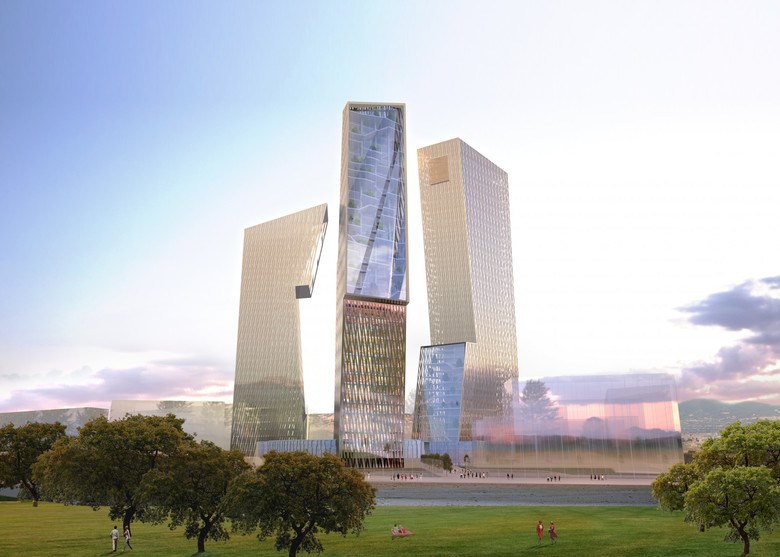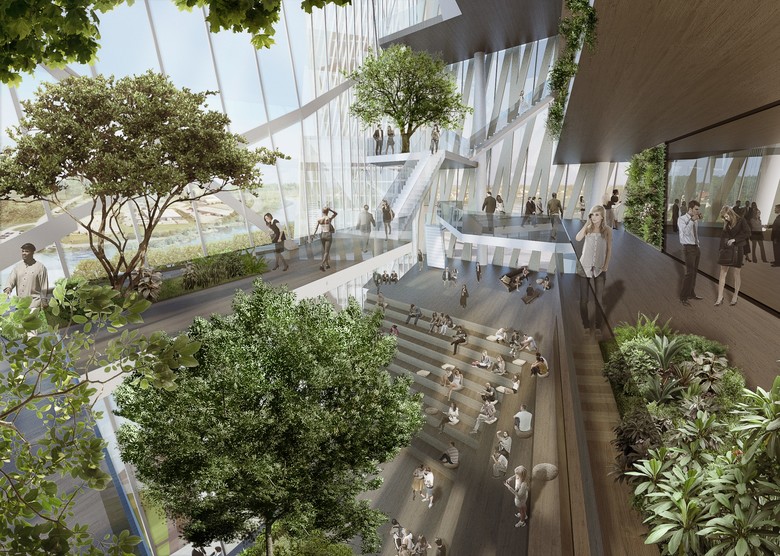Located on 100 hectares/247 acres site that was the former home to Rome’s hippodrome, the 287,000 square meter business park is developed by Eurnova SRL (Roma). The business park is part of a larger master plan conceived by Studio Libeskind in collaboration with Meis Studio (New York) that includes the stadium, training facilities, low and high-rise office buildings, retail, dining, and cinemas. The masterplan envisions a round-the-clock, sustainable, urban district linked to the historic center of Rome.
The design for the business park features three towers in conversation with one another. They stand in close volumetric relationship—seemingly cut from one stone block. The volumes fit into each other like antique building blocks creating a composition of elements that are both connected and singular. The towers are arranged in a triangular formation, with a 3,000 sq-meter colonnaded public piazza, landscaped with a verdant garden and reflecting pools. The towers will be linked to the stadium by means of a retail boulevard that runs from the Tor di Valle metro station to the AS Roma stadium.
The three towers, which vary in height up to 220 meters, emerge from a three-story podium with a planted green roof that, at street level, will provide amenities such as cafes and shopping. The towers are clad in a web of opaque panels that breaks up the glazed façade and creates a unified aesthetic between the trio. Each tower exposes one or two massive glazed garden zones with multi-level open spaces for work, recreation and events. Planted with multiple green features including full-grown trees, the atrium-like spaces will provide spectacular, unobstructed views of the city and the central piazza, as well as enhance the room climate through natural shading, air filtering and circulation. The garden facades are shaped by folded glass planes. Tower One forms the centerpiece of the composition, featuring two vertical gardens on opposite sides, one on the lower half and the other on the upper floors. With a central core, the tower provides for efficient office layouts, while the deeper, multi-level garden zones allow for flexible, open work spaces.


